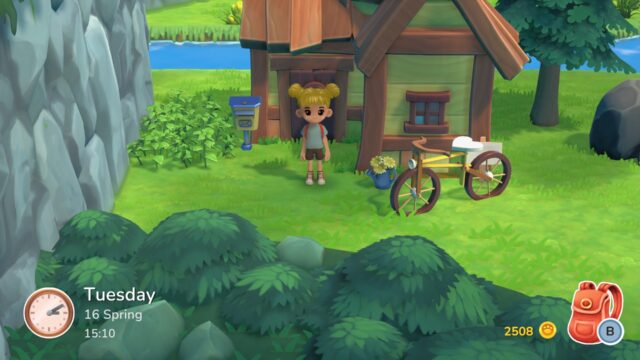Dishonored Review
When was the last time a game made you wait? Not just wait a couple of seconds for the screen to load or for a perfect sniper shot to hit its target. Real waiting. Calmness. The ability to be immersed in the game world for minutes, observing, waiting for a clear picture and planning your actions.
Playing Dishonored will require you to wait a lot. You will peer through keyholes, counting down the seconds, tense and cautious, until you are sure there is no one behind it. You will crouch behind walls or ruins, using supernatural abilities and keeping an eye on faint pale-yellow outlines of enemies, mentally taking notes until you notice their absence in a certain area, which might allow you to sneak by unnoticed. With low health, you will cower, barely hearing the thunderous footsteps of the Tall Boys on their mechanical stilts, praying they don’t notice you. Giving credit to Arkane Studios for the dark, “delicious” game that forces you to resort to tricks, you will note that calmness is the most valuable virtue.
Or you can run around, thrusting weapons into enemies’ necks or shooting them in the face. In the rapidly recovering world of Dishonored, there are no obvious reasons not to be a cruel maniac. There is no morality, no bad or good choice. You will play as Corvo, the disgraced bodyguard of the Empress, falsely accused of her murder. The Empress who ruled over a plague-ridden coastal empire. And it is up to you how you will help the Loyalists in restoring order in the city of Dunwall, even if you end up causing chaos in the process.
What makes Dishonored’s small opportunities so enticing? It is a ruthless game, developed without interest in the aimless bloating that horrifies in blockbusters, where iron creatures emerge from the shadows for 12 months. There are no naval battles, no cooperative approach with fancy weapons, no focus on aesthetics and updates. Here, there is only you, a small set of gadgets and abilities, and levels that resemble sandboxes: small self-contained areas with great possibilities.
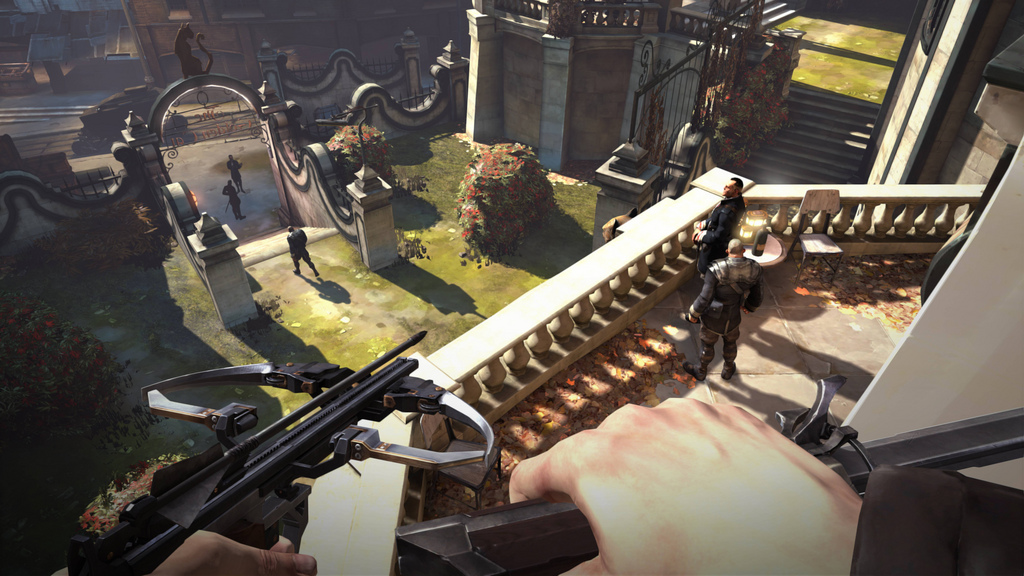
There are only six active abilities and four passive ones. Each can be enhanced with runes that you will find by completing missions. Weapons have more possibilities, but even they are strictly controlled. Void powers will allow your Tesla-like scientist to create new tricks, but often they just result in a double-edged sword. It’s all about first crafting the tools and then choosing the next toy.
So, you will be able to teleport short distances, use a sinister mask to eavesdrop on enemies like a steampunk Batman, or take control of people and animals to access places that Corvo cannot reach on his own. Rats, in particular, can be used by both you and your enemies. Capture them, and you will be able to quickly move through ventilation and pipes, bypassing high-tech security systems. In most cases, they can even devour any corpses to cover your tracks. Of course, they will try to eat you until you collect the bone charms, 40 of which are scattered throughout the game. Placing the charms on them puts them in a helpless state, and they won’t be able to attack you.
Despite the careful attention given to level-by-level gameplay, this is a world in which you can get lost, meticulously designed by Viktor Antonov (the project’s lead graphic designer), reminiscent of the world of Half-Life 2. The tastefully depicted decay of Dunwall resembles Gordon Freeman’s journey through City 17, with the scattered light making the tall buildings dilapidated and blurry, just like their inhabitants. The images of the intimidatingly disguised guards – the City Watch – and their angular blockades are more clearly visible, visually reminiscent of the Combine, which cannot be a mere coincidence.
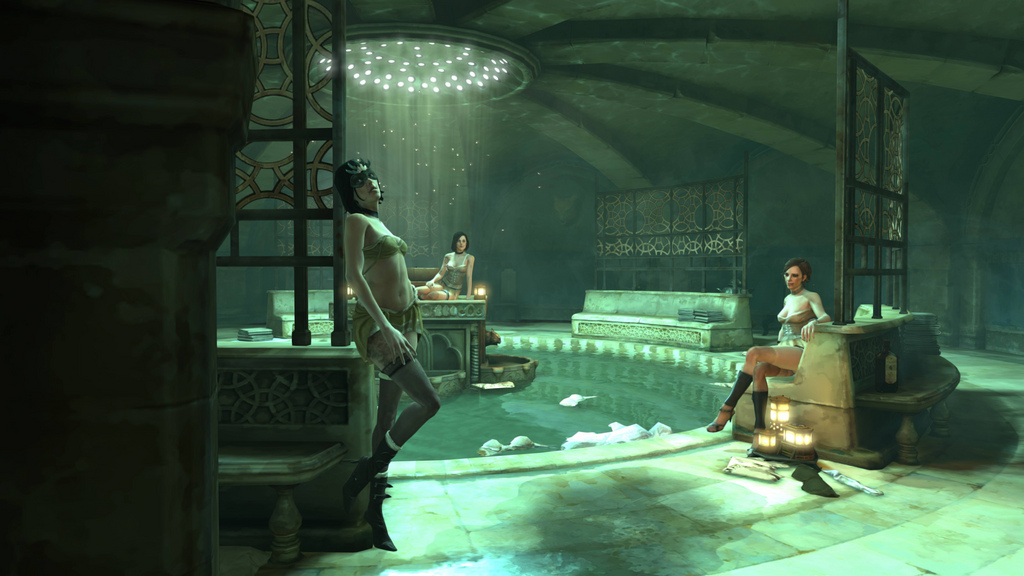
Therefore, Dishonored is a game that should not be expected to be original. You may notice a number of factors that have influenced the game, but that doesn’t mean much. Thanks to Harvey Smith, the creative director, there is clearly something reminiscent of the first Deus Ex here, namely the emphasis on the player being able to choose between stealth and cunning or bold attacks, choosing the path of the game’s development step by step. The duality of magic and hand-to-hand combat, the first-person gameplay reminiscent of The Elder Scrolls, but with earlier roots in Arkane Studio’s game called Arx Fatalis and Dark Messiah. The methodical attention to every step is reminiscent of Thief, while the ability to kill or change your initial targets with a large number of alternative solutions comes straight from Hitman. Even the way stories are told in the background through audiologs, books, and notes suggests that Arkane Studios may have been inspired by the atmosphere of Rapture, helping to create BioShock 2.
It is quite difficult to accuse the game of similarity, even if a number of moments are obvious, but if the game’s creators continue to “borrow” from their equals, it will be difficult for them to advance the product to a higher level. It’s a shame, but Dishonored went too far with this inheritance system, transferring so many similar moments into its unique game world, where Dickensian scarcity collides with the ruthless intrigue of the Tudor court in a city funded by whale oil and whiskey, and overrun by hordes of rats.
This is a game where the larger story provides a general outline but takes a backseat as you create your own stories at each level: impossible escapes and successful heists that remain in memory much longer than the game’s plot with its tales of who did what and when. It is a game whose strongest aspect is that the main intrigue leaves the choice up to you, allowing you to showcase amazing resourcefulness and the uniqueness of missions.
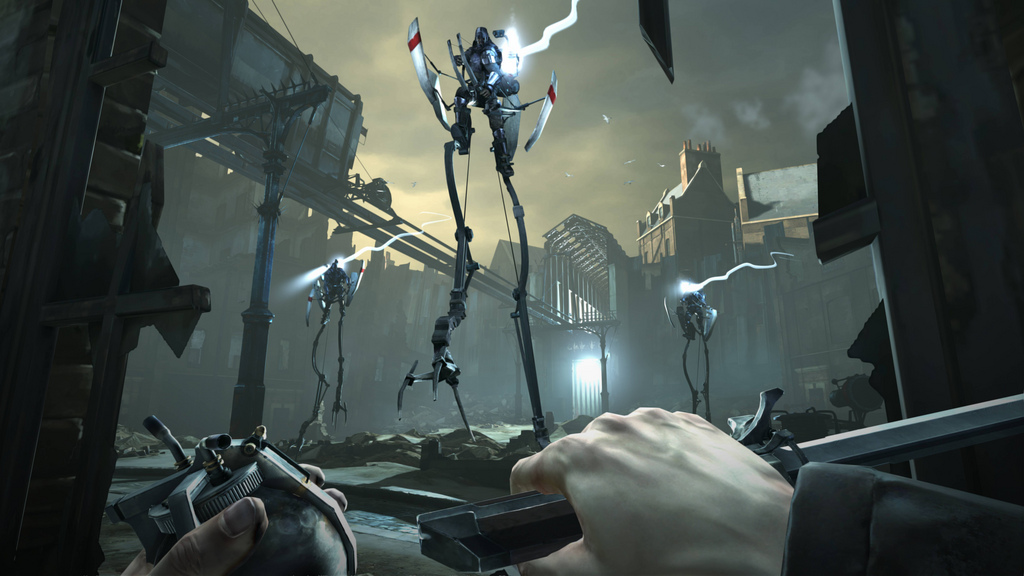
You will infiltrate a high-class brothel, seeking opportunities to kill two sadistic brothers. You will blend in with the guests at an outrageously luxurious masquerade. Even the additional tasks in these locations will be memorable: torturing a perverted art dealer or dueling a narcissistic aristocrat. In these moments, you become engrossed in the game, and the outcome inspires, captivates, and fully satisfies you.
Unfortunately, this perfect balance does not last forever. It is followed by a well-predicted twist that the game throws at you – a fantastic and colorful backdrop of gray stone and steel, forcing you to navigate through the ancestral fortress of enemies on your way to a rather unexpected finale.
This is a challenging game, especially if you try to be as inconspicuous as possible. The combat is cleverly designed, so a direct confrontation is a bad choice. There are places where, according to the script, even a simple 50-meter passage becomes a task that requires titanic efforts to progress even an inch without making fatal mistakes. Although there are only nine missions here, each one includes complex interconnected locations. Those who try to use cunning to the maximum may spend only a few hours on each mission.
Undoubtedly, completing a mission or the entire game without being noticed or without killing anyone is what the game offers to self-assured and enthusiastic players. The game can be positioned as a challenge for those who love tricks and cunning, but even on those players who fail this task, it will leave a deep impression.
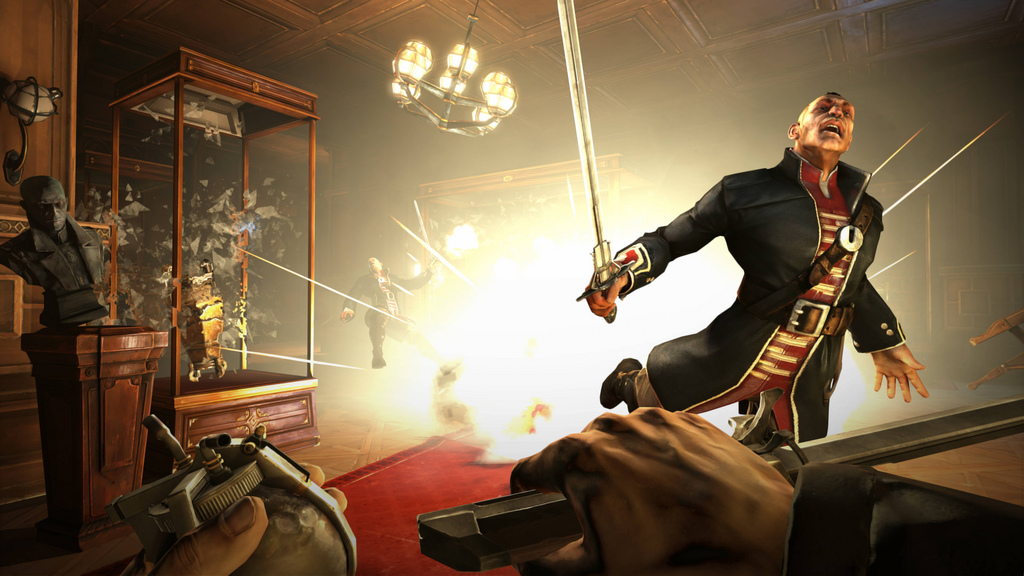
Game developers should be ashamed of some moments in the game that do not always meet high standards. Actions such as opening doors or teleportation, which depend on context, are unnecessarily drawn out. They affect the pace of the game. This is confusing and sometimes, under special tension, can be fatal.
Your opponents do not always remember about concentration and caution, guards sometimes notice you from long distances and at other times, when you sneak by, blissfully unaware of the figures dressed in black, it’s strange that they don’t catch you in their peripheral vision. Once they suspect your presence, their only goal is to surround you. And you must escape from them by diving into a doorway. They won’t think to check that path if you close the door. Once guards appeared in a room in front of me, which had only one exit, and they didn’t check it.
It is also disappointing that there is no possibility to go back and try to complete earlier missions with all the abilities and skills you have acquired after finishing the game. You can go back to any level you want, but only with the abilities you had at that time. Without considering what your hero has achieved, you have to start everything from scratch in order to try different ways of completing the game, just as you study the influence of the chaos system, which changes the game world according to your playstyle (the system tries to adapt to your playstyle).
The shortcomings are quickly forgotten when the achievements of Arkane Studios become visible. It is a strong and bold game, with a fervent belief in its own story and a pronounced focus on satisfaction from the gameplay down to the smallest details, expressed in thousands of situations. Dishonored may not deserve the status of a true classic, but at the same time, the game remains one of the best this year.
- Review of the Dishonored DLC: Dunwall City Trials
- Review of DLC Dishonored: The Knife of Dunwall
Share
Discuss
More Reviews
